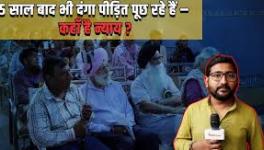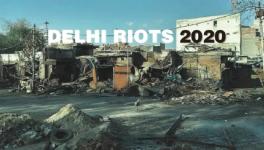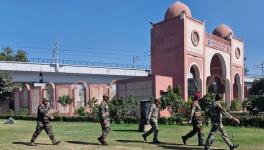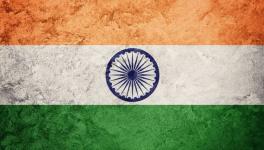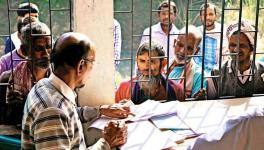Note From a ‘Typical Activist’: Things Have Always Been So Bad
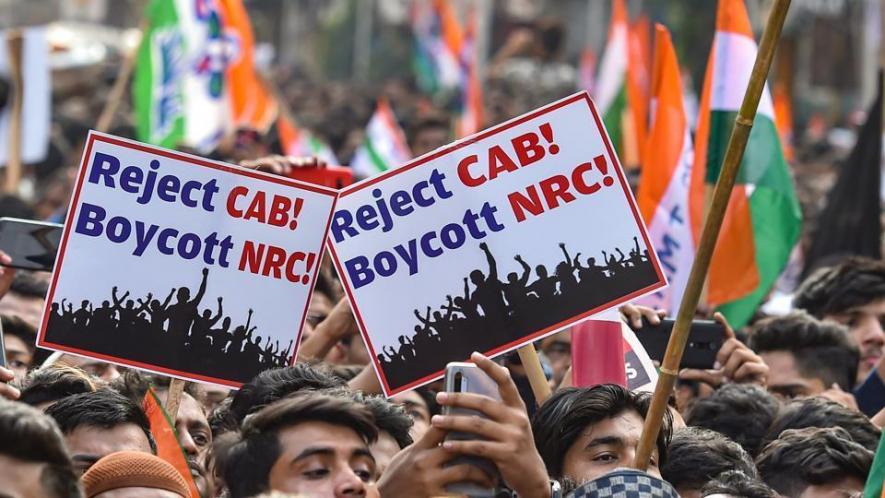
Image Courtesy: Hindustan Times
With the CAA-NPR-NRC triad threatening India’s social fabric, people, especially the young, letting go of all distinctions and differences, are participating in protests. The creativity this has unleashed, which reflects in their songs, slogans, placards and paintings, have taken the internet by storm and inspired more imaginativeness. One such placard reads, “Things are so bad that even South Delhi is here.” This has inspired some posters to replace “South Delhi” in the slogan with “Amity”, “parents”, “Parsi Baugh”, “cynics” and so on.
The resulting slogans, for all the humour and irony they invoke, raise important questions that need to be answered. For, this series of catchphrases implies that before certain sections of society joined the CAA-NPR-NRC protests—like the students of private universities, the residents of upscale localities, the older generations, and so on—things were not that bad. Thus in a way the placards based on the “things are so bad...” theme undermine the countless struggles waged against injustice and exploitation across the country by numerous social groups. They also undermine activism and activists, many of whom, including this writer, are from privileged caste and class locations.
This is not to demean those who are taking part in protests for the first time. Nor is it wrong to poke fun at the privileged lot, who shied away from protests until the patently divisive and unconstitutional CAA came along, with NRC in tow. But it is also a fact that every site of protest is also a site to unlearn received wisdom and share experiences. Perhaps the people who are carrying these placards need to broaden the scope of their solidarity, even towards those who are making their way to a protest site for the very first time.
More importantly, and as any student-activist will confirm, friends, family and even people among whom they campaign, often question their choices and the relevance of activism. The activists’ social circle is often replete with people who do not care for the causes they are fighting for. They are constantly told that protests on such-and-such “do not matter” to them. Every activist, this writer included, can testify to how nearly impossible it is to explain to a non-sympathetic ear what a student or dalit or worker’s battle for justice and rights is all about.
Evidently the placards referred to here target such critics, who never believed in protest before December 2019, the month the CAA was cleared in Parliament. Yet, what the placards ignore is the sad reality that student-activists are repeatedly reminded that their ‘job is to study’ and not participate in politics or activism. This is ironic and misguided, because is there any political party worth its name which does not float a student outfit of its own?
For all the above reasons, the sight of people carrying placards that say “things are so bad that…” raises the immediate question that what was the scale on which this “bad” was being measured? Was the situation not “bad” enough when activists protested against the lynching of Mohammed Akhlaq of Dadri in Uttar Pradesh or Pehlu Khan of Mewat in Haryana and scores others? Was #NotInMyName not worth it? Was the situation not bad enough when there were protests against the institutional murder of Rohith Vemula? Or was the situation not bad enough when JNU students were beaten black and blue by Delhi Police for their protest against the fee hike? It was certainly bad enough when the troll armies of the Bharatiya Janata Party and the broader Hindutva forces abused and threatened anyone for simply holding a point of view different from the ruling cohort’s members.
The fact is, many activists realised a long time ago that things “were never as bad as they are now”. And they understood that something needs to be done about it. Those carrying the ‘things are so bad” posters perhaps need to ask themselves: was the situation any better before the CAA came into effect? They will undoubtedly realise that conditions have been very bad for a significant section of the Indian population for a long time. Things have been bad for those workers who died suffocating in the fire that broke out at Azad Market in 2019 and they have been worse for farmers, 11,379 of whom committed suicide in 2016, largely because of crushing debt.
Circumstances have also been bad for those youngsters who are employed in undignified jobs, for the manual scavengers, for the dalits who are still being hounded and killed for wearing the ‘wrong’ shoes, for not saluting members of elite castes or for marrying one of a caste considered ‘higher’ on the traditional Varna ladder. Things have, in fact, been bad for the dalits for a long time.
Seen in this light, “things are so bad” posters normalise the “apolitical” thought processes prevailing among a large section of the urban middle class population. Politics is virtually a cuss-word for these people, who, deliberately or otherwise, misunderstand the significance of politics. While JNU students protest the fee hike or AMU and Jamia students oppose the anti-Constitution CAA, it is largely this section of the middle class that manufactures narratives against students “doing politics”. This section believes that politics is bad or wrong for students. The famous saying, “when politics decides your future, decide what your politics is” is not something most city-based middle classes easily grasp or identify with. But the fact that the elites of society do not feel engaged with any issue does not make the cause itself unworthy of protest. If the escalating prices of petrol or onions does not move them to tears, that does not mean ordinary people are unaffected by it. Every aspect of life, from education to the school curriculum to the cost of healthcare and what work citizens get, the commodities they consume, even whom people love and marry, is embedded in “politics”. Hence it is a “duty” not only to vote during elections, but to engage in politics.
The anti-CAA protests have opened new avenues of dialogue and spaces for empathy, breaking several stereotypes. One of them is the city-based middle class’s perception of who is an activist. Their idea of an activist is no more a caricature; one who creates nuisance, carries a jhola, disrupts public order and hurts the economy. This stereotype itself was propagated by those in power to demean activism. Now that thousands of citizens are protesting—having realised that the situation is “bad”—one hopes that the “typical activist” will also stand vindicated. Perhaps, from now on, those who have entered activism for the first time with the CAA-NPR-NRC debate, those aloof of “politics” so far, will be more empathetic towards other protests and activists. They will realise that such movements take place only in the wake of an injustice.
The author is a research scholar at JNU, Delhi. The views are personal.
Get the latest reports & analysis with people's perspective on Protests, movements & deep analytical videos, discussions of the current affairs in your Telegram app. Subscribe to NewsClick's Telegram channel & get Real-Time updates on stories, as they get published on our website.









